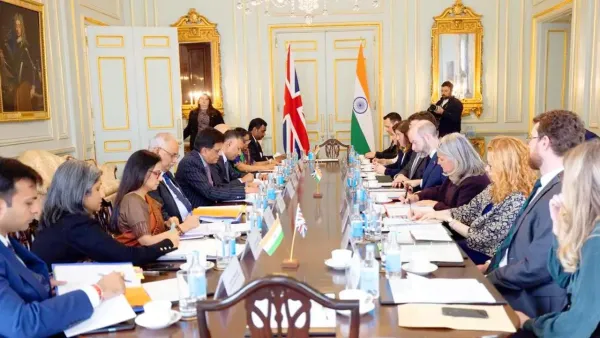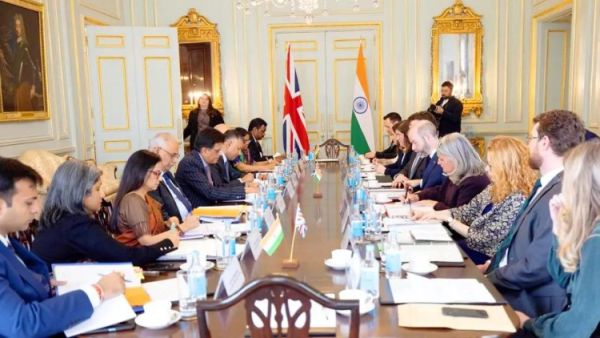
A “landmark” multi-billion-pound trade agreement between India and the UK was agreed on Tuesday. It is anticipated to boost the British economy by 4.8 billion pounds a year by 2040 and locks in reductions on 90% of tariff lines. According to reports, Prime Ministers Keir Starmer and Narendra Modi had a “very warm” phone conversation to agree on the Free Trade Agreement (FTA). The FTA will now go through the formalization of its legislative wording and be ratified by the British Parliament before it becomes operative.

“Today, we reached a historic agreement with India, one of the world’s fastest-growing economies, which will boost the economy and benefit British citizens and businesses,” UK Prime Minister Markle stated. During his discussions with UK Business and Trade Secretary Jonathan Reynolds in London on Friday, Commerce and Industry Minister Piyush Goyal finalized the agreement. The two greatest benefits being emphasized for the UK are the halving of Scotch whisky taxes from 150 to 75 percent and the reduction of automobile tariffs from 100 to 10 percent under a quota.
In addition to whiskey and gin, the UK Department for Business and Trade (DBT) reports that tariffs have been lowered on goods including lamb, sophisticated equipment, and medical gadgets. Over time, it is anticipated that the FTA would raise bilateral commerce, which now stands at 41 billion pounds annually, by an extra 25.5 billion pounds, resulting in a 2.2 billion-pound annual rise in UK wages.
99 percent of Indian exports will be profitable.
In addition to IT/ITeS, financial, professional, and educational services, British consumers may benefit from lower prices for a number of items as the UK liberalizes tariffs on imports of food products, including frozen prawns, textiles, marine products, leather, footwear, sports goods and toys, gems and jewelry, engineering goods, auto parts and engines, and organic chemicals from India.